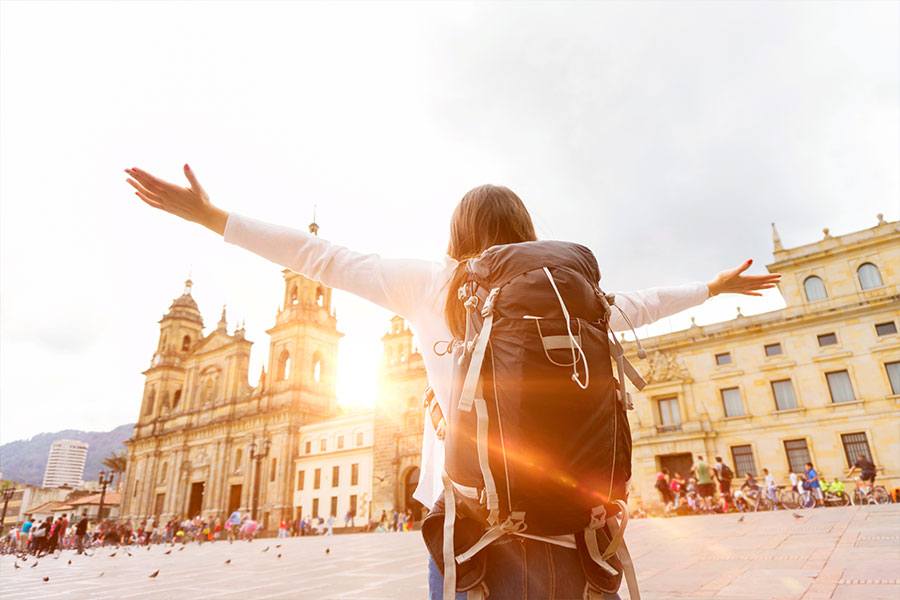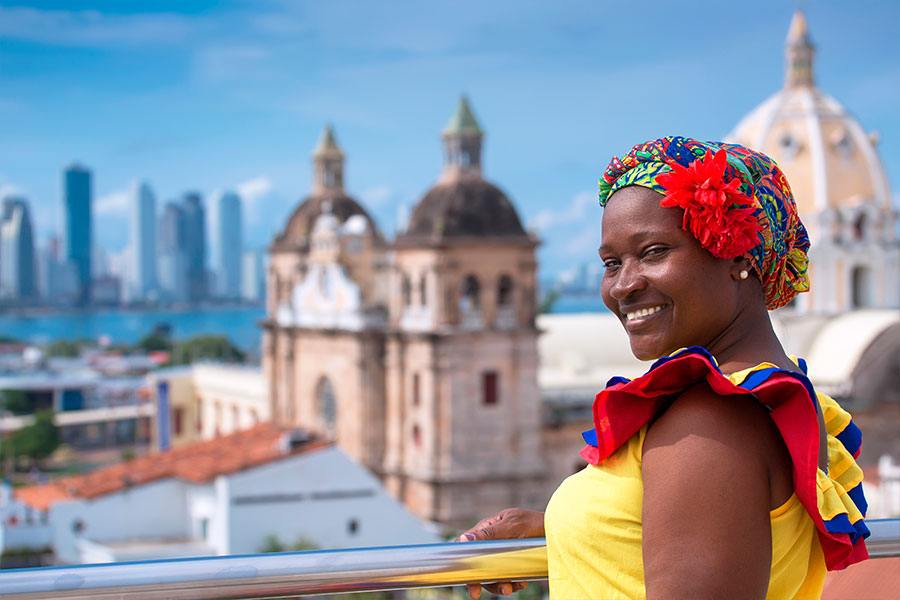COLOMBIA
Tips to keep in mind to enjoy sustainable tourism in Colombia
COLOMBIA

Seeing breathtaking landscapes, marveling at wildlife and witnessing from up close the history and legacy of other cultures is an enlightening experience. However, tourism can have a negative impact if travelers are not aware of the importance of caring for their natural surroundings and supporting local communities.
Here you'll find some tips for a responsible journey that will let you engage in sustainable tourism in Colombia.

What is sustainable tourism?
According to UNESCO, sustainable or responsible tourism is that which "respects both local people and the traveler, cultural heritage and the environment". It provides the possibility for an exciting holiday and, at the same time, it benefits those living in a region with a substantial flow of tourists.
Every year, Colombia receives over 6.5 million people from other countries, according to data from the Ministry of Commerce, Industry and Tourism. The number proves that Colombia has become a key touristic destination in the region, but it also represents a challenge when it comes to responsible tourism, given that the massive visits to some parts of the country can bring negative side effects like pollution and erosion of natural reserves.
For Alejandro Arango Ramírez, professor at the Faculty of Environmental Sciences at the Universidad Piloto de Colombia, and expert in sustainable consumption, it's important for the sector to focus on sustainable tourism to take advantage of its potential in Colombia. "It has an immense role as an engine to improve quality of life. A simple fact to understand this idea is that, since Colombia is the most biodiverse country in the world in proportion to its land occupation (according to the World Tourism Organization), while a regular traveler spends about $80 USD daily, a traveler interested in nature spends around $400 USD", claims Arango.
Discover: The five best places to visit for ecotourism in Colombia.
Responsible tourist: What to do as a traveler to support sustainable tourism in Colombia?
According to the World Tourism Organization (UNWTO), the key "to satisfy the needs of visitors, the industry, the ecosystem, and the local communities is to be fully aware of the current and future economic, social and environmental repercussions".
What does this mean in practical terms? Here are some tips that will make your trip through Colombia more sustainable and responsible with local communities and the natural resources in the country.
Reduce your environmental impact
It's simple to engage in ethical tourism if you keep in mind many of the recommendations for the protection of the environment you should be practicing at home. Recycling, packing your groceries in reusable bags, consuming less plastic, turning off the lights in your hotel room and disconnecting the chargers when you're not using them, these are some of the things you can do to protect the fauna, flora, and natural resources of any location in your itinerary.

Support the local economy
Artisans and indigenous communities create numerous products that are ideal to take home as a souvenir of your journey through Colombia.
The offer is quite diverse: jewelry, bags, knitwear, hats, and decorative pieces for your home and office are a part of the wide catalogue of Colombian handcrafts. When you purchase any of these objects, you are supporting the work and the way of life of talented craftspeople and, at the same time, you are taking a unique keepsake that will surely become a conversation piece when you get home.
Travel with the touristic operators that support the growth of rural communities
Before you journey to protected natural areas, and especially if you want to hire services with travel agencies, search for those that offer responsible tourism excursions and plans.
Through the website for the Colombian Association for Responsible Tourism (ACOTUR) you can find the list of tourism companies promoting sustainability by generating economic benefits for the residents, offering cultural experiences that connect you with the hosting communities and give you a better understanding of their way of life, and creating quality employment opportunities for locals, among other actions.
Related story: Santa Marta Mountain Range: A land of Indigenous Groups – A magical destination to get to know the native communities.
Respect local customs

Traveling is an opportunity to experience new cultures, traditions and beliefs. Approach them with respect, you might find something enlightening.
Ethical tourism can have a transformative power for two reasons: on the one hand, it can change you as a traveler, on the other, it can promote economic growth and cultural exchange in hosting communities.
Where can you enjoy sustainable tourism in Colombia?
According to Alejandro Arango, Colombia doesn't have a unique process to certify that a destination meets all the requirements for sustainable tourism. However, the national government, through the Ministry of Commerce, Industry and Tourism, has identified some places to take part in responsible tourism.Among them you'll find Puerto Nariño, a town in the Amazonas department; Parque Arví, located in the city of Medellín; the island of Gorgona; La Aguada beach in the Chocó department; the historical quarters of Mompox and Cartagena; Salento and Finlandia, towns in the Quindío department; and the historical quarter of Villa de Leyva in the Boyacá department.
There are other destinations going through the certification process as is the case of La Macarena in the Meta department, the towns of Girón and Socorro in the Santander department, the Candelaria sector in Bogotá DC, and the historical quarter of Manizales in the Caldas department.
Practicing sustainable tourism is a way of making a positive impact in the places you visit. Keep in mind this information during your next trip and support touristic sustainability in Colombia so that you may enjoy its natural wealth and its traditions for many years to come.



















